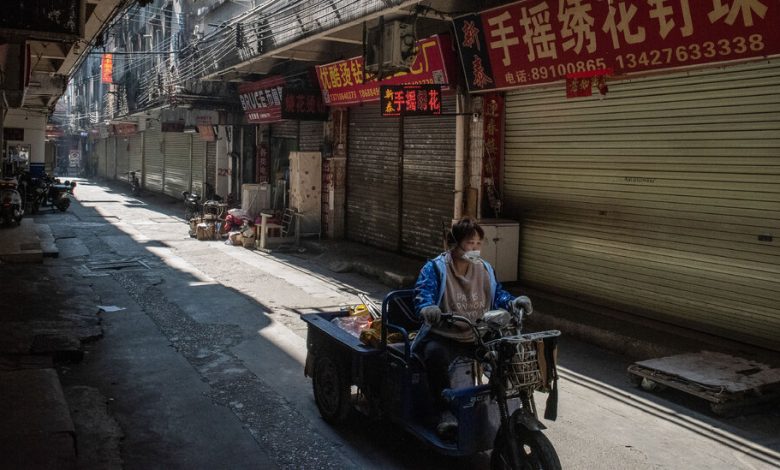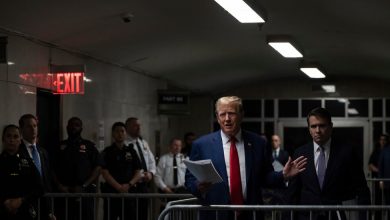From Disciplinarian to Cheerleader: Why China Is Changing Its Tone on Business

China’s leader, Xi Jinping, used his annual New Year’s Eve address in 2021 to laud the patriotic achievements of the Chinese people. In a year marked by crackdowns on tech companies, curbs on borrowing by the country’s property firms, and a refusal to budge on restrictive Covid policies, Mr. Xi made no direct mention of the economy or business.
In the first minute of his most recent address, Mr. Xi extolled the country’s economy, still the world’s second largest, and explained that China had cut taxes and fees as well as introducing measures “to ease the burden on businesses.” A few weeks earlier at a meeting to lay out policy objectives for 2023, Mr. Xi and other top leaders expressed the need to bolster the economy and pledged support for the private sector.
The disciplinarian of China Inc. has turned cheerleader.
“The Chinese economy enjoys strong resilience, tremendous potential and great vitality. The fundamentals sustaining its long-term growth have remained strong,” Mr. Xi said in the address, while urging the Chinese people to “stay confident.”
Taking their cues from the top, Chinese officials in recent weeks have been embracing the kind of business-friendly language that has been absent in recent years. With the same fervor that it once defended the necessity of all-out war against Covid, China is waging a campaign to persuade businesses that it is prioritizing economic growth.
Mr. Xi’s hallmark initiatives of only a few years ago are starting to be reversed. After recently forcing Jack Ma, China’s most famous tech tycoon, to relinquish control of a prized asset, there are signs that Big Tech may be finally be emerging from the regulatory doghouse.
As when China suddenly reversed course on its “zero Covid” strategy a month ago, this latest about-face is acknowledgment of the fragile state of the nation’s economy. Growth is at its slowest rate in decades, hampered by a property market in crisis, a lack of promising jobs for young people, consumer confidence shaken by years of rigid Covid policies and depleted local government coffers.
In recent years, China had abandoned pro-business market overhaul in favor of a more state-controlled economy, in which business interests were secondary to the goals of the Chinese Communist Party. China’s handling of the pandemic, and the growing ideological influence on its economic policies, have caused many business people to question whether the country remains a reliable place to operate. Companies like Apple have been looking with greater urgency to diversify outside China.
More on China
- Covid Outbreak: Since China abandoned its strict “zero Covid” policy, the intensity and magnitude of the country’s outbreak has remained largely a mystery. But a picture is emerging of the virus spreading like wildfire.
- Economic Recovery: Years of Covid lockdowns took a brutal toll on Chinese businesses. Now, the rapid spread of the virus after a chaotic reopening has deprived them of workers and customers.
- Youth Unemployment: With youth unemployment high in China, millions will soon take the Civil Service exam. But for those who get entry-level government jobs, the reality can be monotonous work that blurs the line with personal lives.
- Space Program: Human spaceflight achievements show that China is running a steady space marathon rather than competing in a head-to-head space race with the United States.
After reining in the influence of powerful internet conglomerates through aggressive regulation, China’s central bank said this week that it was relaxing the oversight of technology companies. Through a series of measures starting last month, China has progressively rolled back restrictions on heavy borrowing by property developers and has indicated plans to continue doing so.
China’s finance minister, Liu Kun, told state media that the country planned to spend heavily in 2023 to support an economic recovery through a mixture of stimulus spending, subsidies and tax cuts.
It remains unclear whether these changes will be enough.
“There’s a lack of trust right now, and that’s not going to go away,” said Duncan Clark, the chairman of BDA, a Beijing-based investment advisory firm. He said businesses now assumed a greater risk with operating in China than they had in the past.
Xiang Songzuo, a Chinese economist and a former official at the People’s Bank of China, said he did not think that fundamentally there had been a major change in the Chinese leaders’ approach to business, but that their language had softened because of the sluggish economy.
In the current economy, China needs private firms to invest more, hire more and pay more in taxes. As a result, the tone has changed to “reassure and pacify them,” Mr. Xiang said. But tension remains because China wants to maintain control over private companies and will not entrust oversight purely to the markets or existing laws.
Starting around 2020, China intensified the scrutiny of the business and data collection practices of its biggest technology companies like ride-hailing service Didi Global and Ant Group, the financial technology sister company of the e-commerce giant Alibaba.
Chinese officials abruptly suspended Ant Group’s initial public offering late that year, after Mr. Ma criticized China’s banking sector as backward. Chinese regulators forced Ant to register as a financial holding company and to separate its payment app from its financial services. The public listing never took place.
Then last month, the tone shifted. In laying out its policy objectives for this year, Chinese officials said they planned for more “normalized supervision” of technology firms.
In what appeared to be a coda to China’s crackdown on Big Tech, Ant Group announced on Saturday that Mr. Ma would relinquish control of the company.
Around the time Ant announced the change in control, Guo Shuqing, the Communist Party secretary at the People’s Bank of China, said the so-called rectification campaign into the biggest technology companies was “basically complete.”
China has also said it would take the necessary steps to revive a housing market, which has been under pressure from Beijing’s efforts in recent years to curb the reckless borrowing habits of property firms.
The government, alarmed by the sharp downturn in the real estate market and the growing unrest over unfinished apartment buildings, has removed many of the debt restrictions devised to rein in firms. China has also urged banks to lend more to developers to complete unfinished apartments, while making it easier for the developers to borrow.
These steps, however, fail to address a core issue: Chinese consumers, once enthusiastic buyers of real estate, are not interested. Sales at the 100 largest property developers were down more than 40 percent last year compared with the year before, according to China Index Academy, a real estate research firm.
The challenges facing Chinese businesses extend beyond its borders. Jacob Rothman, a co-chief executive of Velong Enterprises, a manufacturer of kitchen and grilling equipment based in the country’s southern Guangdong Province, says the economic outlook in China will not improve until Beijing and Washington stop escalating tensions for political gain at home.
As China became the world’s factory floor, Mr. Rothman’s company grew from a single manufacturing site 20 years ago to six factories in the country today. It now employs more than 1,000 Chinese workers, who produce many common kitchen items, including bowls, knives and other cooking equipment.
Mr. Rothman, an American who has lived in China for more than two decades, says it is hard to keep investing without an improvement in diplomatic relations, which started deteriorating during the Trump-era trade war. Exports account for about 20 percent of China’s economy, and the United States remains the biggest buyer of Chinese goods.
While it is hard to replicate China’s productivity and efficiency elsewhere, Velong has added facilities in countries like Vietnam and Cambodia because customers worry about being too dependent on China. It’s a concern that has become more urgent, he said.
“Right now, it’s a must-have, and people are specifically saying we want an option other than China,” said Mr. Rothman said.
Chang Che contributed reporting.




